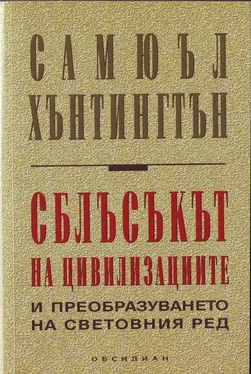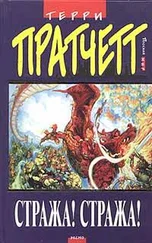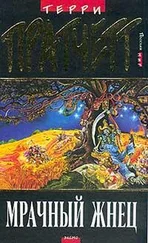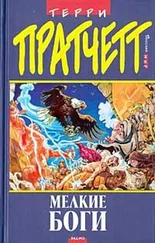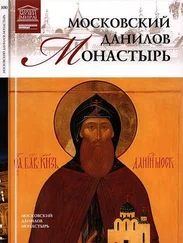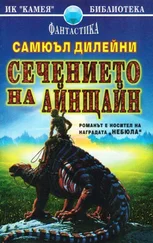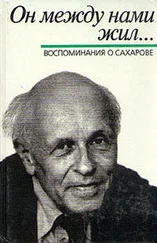В Трета глава се обсъжда паралелна линия на аргументация, основана не на края на Студената война, а на дългосрочни икономически и социални тенденции, водещи до „универсална цивилизация“.
Francis Fuкuyama, „The End of History“, The National Interest, 16 (Summer 1989), 4,18.
„Address to the Congress Reporting on the Yalta Conference“, 1 March, 1945, в Samuel I. Rosenman, ed., Public Papers and Addresses of Franklin D. Roosevelt (New York: Russel and Russel, 1969), XIII, 586.
Дар ал-ислям — мюсюлмански страни (ар.), Дар ал-харб — немюсюлмански страни (ар.). — Б. пр.
Вж. Max Singer and Aaron Wildawsky, The Real World Order: Zones of Peace, Zones of Turmoil (Chatham, NJ: Chatham House, 1993); Robert O. Keohane and Joseph S. Nye, „Introduction: The End of the Cold War in Europe“, в Keohane, Nye and Stanle Hoffmann, eds., After the Cold War: International Institutions and State Strategies in Europe, 1989–1991 (Cambridge: Harvard University Press, 1993), p. 6; и James M. Goldgeier, and Michael McFaul, „A Tale of Two Worlds: Core and Periphery in the Post-Cold War Era“, International Organization, 46 (Spring 1992), 467–491.
Вж. F. S. C. Northrop, The Meeting of East and West: An Inquiry Concerning World Understanding (New York: Macmillan, 1946).
Edward W. Said, Orientalism (New York: Pantheon Books, 1978), p. 43–44.
Вж. Jeneth N. Waltz, „The Emerging Structure of International Politics“, International Security, 18, (Fall 1993), 44-79; John Mearsheimer, „Back to the Future: Instability in Europe after the Cold War“, International Security, 15 (Summer 1990), 5–56.
Стивън Д. Краснър поставя под въпрос значението на Вест-фалия като вододел. Вж. неговата статия „Westphalia and All That“ в Goldstein and Keohane, eds., Ideas amd Foreign Policy, pp. 235–264.
Збигнев Бжежински, „Извън контрол: Глобален безпорядък в навечерието на XXI век“, София, „Обсидиан“, 1994); Daniel Patrick Moynihan, Pandaemonium: Ethnicity in International Politics (Oxford: Oxford University Press, 1993), вж. също Robert Kaplan, „The Coming Anarchy“, Atlantic Monthly, 273 (Feb. 1994), 44–76.
Вж. New York Times, 7 February 1993, pp. 1, 14; и Gabriel Schoenfeld, „Outer Limits“, Post-Soviet Prospects, 17 (Jan. 1993), в която са цитирани данни от Министерството на отбраната на Русия.
Вж. Gaddis, „Toward the Post-Cold War World“; Benjamin R. Barber „Jihad vs. McWorld“, Atlantic Monthly, 269 (March 1992), 53–63, и Jihad vs. McWorld (New York: Times Books, 1995); Hans Mark, „After Victory in the Cold War: The Global Village or Tribal Warfare“ в J. J. Lee and Walter Korter., eds., Europe in Transition: Political, Economic and Security Prospects for the 1990s. (LBJ School of Public Affairs, University of Texas in Austin, March 1990), pp. 19–27.
John J. Mearsheimer, „The Case for a Nuclear Deterrent“, Foreign Affairs, 72 (Summer 1993), 54.
Lester B. Pearson, Democracy in World Politics (Princeton: Princeton University Press, 1955) pp. 82–83.
Напълно независимо Йохан Галтунг развива анализ, който върви като близък паралел на мой анализ по отношение на извънредно голямото значение, което имат осемте основни цивилизации, респективно техните държави-ядра, по отношение на световната политика. Вж. неговата статия „The Emerging Conflict Formations“ в Katharine and Majid Tehranian, eds., Restructuring for World Peace: On the Treshold of the Twenty First Century (Cresskill NJ: Hampton Press, 1992) pp. 23–24. Галтунг вижда зараждането на седем регионално-културни групировки, доминирани от хегемоните: САЩ, Европейската общност, Япония, Китай, Русия, Индия и „ислямско ядро“. Други автори, които в началото на 90-те години обявиха сходни възгледи за цивилизациите, са: Michael Lind, „America as an Ordinary Country“, American Enterprise, (1 Sept./Oct., 1990), 19-23; Barry Buzan, „New Patterns of Global Security in the Twenty-first Century“, International Affairs, 67 (1991), 441, 448-449; Robert Gilpin, „The Cycle of Great Powers: Has It Finally Been Broken?“ (Princeton University, unpublished paper, 19 May 1993) pp. 6ff; William S. Lind, „North-South Relations: Rehiring to a World of Cultures in Conflict“, Current World Leaders, 35 (December 1992), 1073–1080, както и „Defending Western Culture“, Foreign Policy, 84 (Fall 1994) 40-50; „Looking Back from 2992: A World History“, chap. 13: „The Disastrous 21st Century“, Economist, 26 December 1992 — 8 January 1994, pp. 17-19; „The New World Order: Back to the Future“, Economist, 8 January 1994, pp. 21-23; „A Survey of Defence and the Democracies“, Economist, 1 September 1990; Zsolt Rostovanyi, „Clash of Civilizations and Cultures: Unity and Disunity of World Order“ (unpublished paper, 29 March 1993); Michael Vlahos, „Culture and Foreign Policy“, Foreign Policy, 82 (Spring 1991), 59-78; Donald J. Puchala, „The History of the Future of International Relations“, Ethics and International Affairs, 8 (1994), 177-202; Mahdi Elmandjra „Cultural Diversity: Key to Survival in the Future“ (доклад, изнесен на Първия мексикански конгрес по изследване на бъдещето, Мексико Сити, септември 1994 г.). През 1991 г. Алманджра публикува на арабски книга, която следващата година е преведена на френски под заглавието „Premiere Guerre Civilisationnelle“ (Casablanca: Ed. Toubkal, 1982, 1994).
Fernand Braudel, On History (Chicago: University of Chicago Press, 1980), pp. 210–211.
„Историята на света е история на големите култури“. Oswald Spengler, Decline of the West (New York: A. A. Knopf, 1926–1928), II, 170. Основните трудове на учените, анализиращи природата и динамиката на цивилизациите, включват: Макс Вебер. „Социология на господството. Социология на религията“ (УИ „Св. Климент Охридски“, 1992, превод Румен Даскалов); Emile Durkheim and Marcel Mauss, „Note on the Notion of Civilization“, Social Research, 38 (1971), 808-813; Oswald Spengler, Decline of the West, Pitirim Sorokin, Social and Cultural Dynamics (New York: American Book Co., 4 vols., 1937–1985); Arnold Toynbee, A Study of History (London: Oxford University Press, 12 vols., 1934–1961); Alfred Weber, Kulturgeschichte als Kultursoziologie (Leiden: A. W. Sijthoff’s Uitgerversmaatschappij N. V, 1935); A. L. Kroeber, Configurations of Culture Growth (Berkeley: University of California Press, 1944) и Style and Civilizations (West-port, CT: Greenwood Press, 1973); Philip Bagby, Culture and History: Prolegomena to the Comparative Study of Civilizations (London: Longmans, Green, 1958); Carroll Quigley, The Evolution of Civilizations: An Introduction to Historical Analysis (New York: Macmillan, 1961); Rushton Coulborn, The Origin of Civilized Societies (Princeton: Princeton University Press, 1959); S. N. Eisenstadt, „Cultural Traditions and Political Dynamics: The Origins and Modes of Ideological Politics“, British Journal of Sociology, 32 (June 1981), 155-181; Fernand Braudel, History of Civilizations (New York: Allen Lane — Penguin Press, 1994) и On History (Chicago: University of Chicago Press, 1980); William H. McNeill, The Rise of the West: A History of the Human Community (Chicago: University of Chicago Press, 1963); Adda B. Bozeman, „Civilizations Under Stress“, Virginia Quarterly Review, 51 (Winter 1975), 1–18, Strategic Intelligence and Statecraft (Washington: Brassey’s (US), 1992), и Politics and Culture in International History: From the Ancient Near East to the Opening of the Modern Age (New Brunswick, NJ: Transaction Publishers, 1994); Christopher Daw-son, Dynamics of World History (LaSalle, IL: Sherwood Sugden Co, 1978) и The Movement of World Revolution (New York: Sheed and Ward, 1959); Immanuel Wallerstein: Geopolitics and Geoculture: Essays on the Changing World-System (Cambridge: Cambridge Uni-versity Press, 1992); Felipe Fernandez-Armesto, Millennium: A History of the Last Thousand Years (New York: Scribners, 1995). Към тези трудове може да бъде прибавена и последната, белязана от трагична съдба творба на Louis Hartz, A Synthesis of World History (Zurich: Humanity Press, 1983), която, както коментира Самюел Биър, „много точно предвижда разделението на света след Студената война на пет големи «културни области»: християнска, мюсюлманска, индуистка, конфуцианска и африканска.“ Memorial Minute, Louis Hartz, Harvard University Gazette, 89 (May 27, 1994). Изключително ценно въведение в анализа на цивилизациите намираме при Matthew Melko, The Nature of Civilizations (Boston: Porter Sargent, 1969). За полезните съвети във връзка с моята статия във Foreign Affairs съм задължен също така на Hayward W. Alker, Jr., „If Not Huntington’s «Civilizations», Then Whose?“ (unpublished paper, Massachusetts Institute of Technology, 25 March 1994).
Читать дальше
